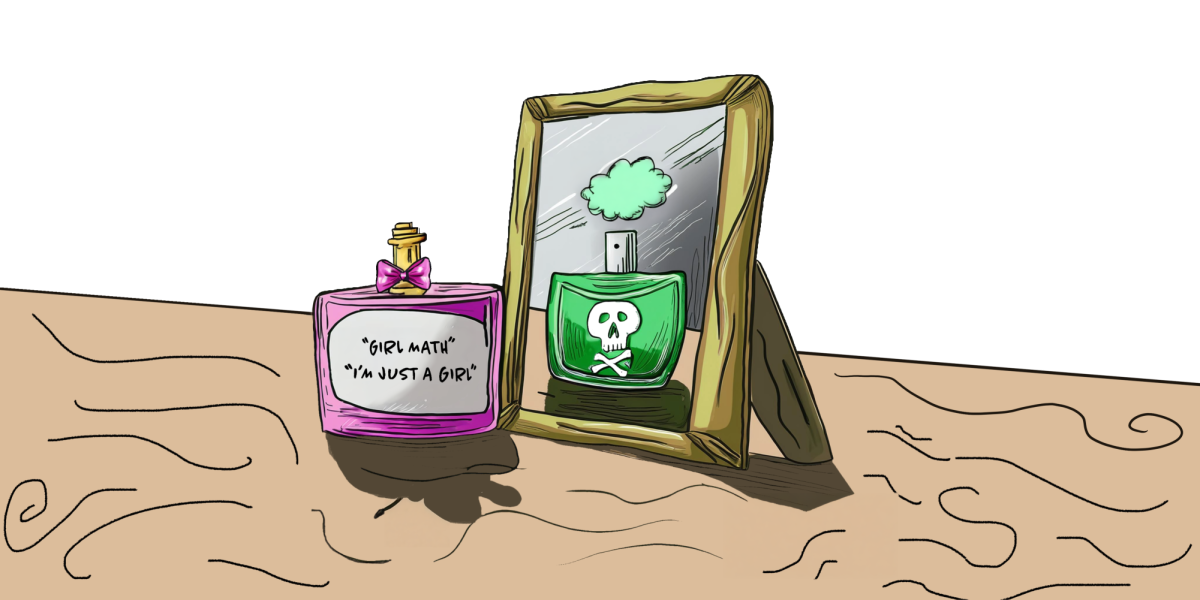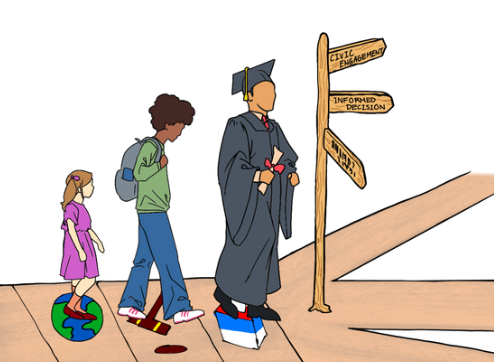Written by Grace Tramack
Students have plenty to be proud of—awards, grades, extracurriculars—and graduating from a nationally ranked high school is an achievement in itself. However, with Gunn being located in Silicon Valley and having a close proximity to Stanford, a bragging culture is inevitably formed. Comparing SAT or ACT scores, grades and number of Advanced Placement classes is the norm at Gunn, breeding an unhealthy and unreasonable standard of competition that promotes perfection. Gunn’s bragging culture is toxic, as it hinders one’s ability to pursue personal interests, causes students’ self-esteem and sense of belonging to diminish and creates a dangerous cycle of boasting achievements.
By advocating this culture of overachievement, stu- dents are pressured to prioritize “impressive” activities or classes over their own passions. Palo Alto prides itself on being a diverse community, but diversity in extracur- riculars and hobbies is not as publicly promoted. Due to a clear focus on science, technology, engineering and math (STEM) at Gunn and generally in the Silicon Valley, passions such as art, music or the humanities are often seen as useless to one’s future and of less value than STEM activities and clubs. Being interested in STEM is great if that is one’s passion, but adapting to the mentality that it is the only worthwhile pursuit can be detrimental to one’s emotional or mental state and overall success in life. It is of much greater value that students participate in activities they truly enjoy rather than partake in activities they feel pressured to do. According to the 2016-2017 California Healthy Kids Survey, only 31 percent of ninth graders and 36 percent of 11th graders at Gunn agree that they try hard at school because they are interested in their work. By bragging about a difficult class schedule or internships with more STEM values, students at Gunn undermine the importance of happiness through self-improvement in activities they love and replace it with those they believe will look better on their college application.
Another consequence of constant bragging is that it causes students’ confidence and sense of belonging to waver. Harvard University Neuroscientist Diana Tamir conducted an experiment about how talking about oneself and one’s experiences is a rewarding practice. People who participated in her experiment were more likely to talk about
themselves, even if it meant forgoing money. The culture of celebrating achievements here at Gunn manifests itself in the habit of comparison and boasting the highest score on a test or quiz. It teaches students that in order to feel pride, true satisfaction in one’s accomplishments must come from superiority over others, when in reality it should come from our own pride in our accomplishments. An unrealistic standard of perfection set by bragging peers causes those who receive lower test scores to begin to doubt themselves and their belonging in a school of such high achievers.
Finally, this culture is dangerous because the more it is perpetuated, the more it becomes part of daily life at Gunn. People start to discuss their accomplishments, and, feeling defensive and inferior, others retort with their own successes. Instead of being genuinely excited for the achievements of their peers, students’ first instincts are to boast about their own in order to prove themselves just as successful. Students are often left feeling doubtful of the value in their own performances and begin searching for validation through bragging. In the end, however, nobody benefits from these actions. Instead, those who are not as vocal about their accomplishments feel left behind, and tension and resentment betweenstudents grows.
The toxic bragging culture at Gunn inhibits the ability to pursue personal interests, causes self-esteem to decrease and creates a dangerous cycle that is ultimately dangerous to the wellbeing of students. While it is important to take pride in accomplishments, boasting excessively to friends and peers is destructive not only to their confidence but eventually to one’s own as well. It is more beneficial to everyone to be mutually happy for each other’s successes, no matter how seemingly insignificant.



















